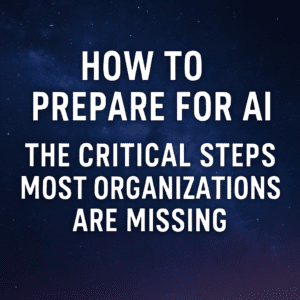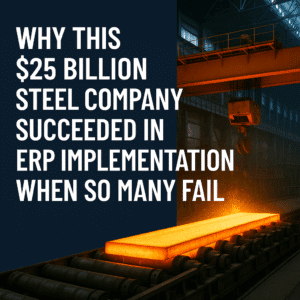Choosing or upgrading to Microsoft Dynamics 365 as your preferred ERP system is a big milestone. But selecting the best Microsoft Dynamics 365 system integrator for your company is an even bigger decision.
D365 is a great product that fits well with a number of companies. This is a good first step. But, ERP implementation success generally has less to do with the software you choose and more to do with how you implement the software. This is one of the key lessons from my experience as a Microsoft Dynamics 365 expert witness.
Choosing a D365 system integrator has a number of dimensions. Here are some tips to choose the best Microsoft Dynamics 365 system integrator:
Table of Contents
ToggleAssess the competencies of the Microsoft Dynamics 365 system integrator
Your D365 integrator is only as good as its team members. You should assess the skills of potential system integrator competencies – not only in Microsoft Dynamics 365, but in project management, business process, and other skills important to your implementation. If your integrator or reseller doesn’t have that experience, then you should plug that gap with a third-party firm that can provide the required experience.
Look for past experience with projects similar to yours
Your organization is a unique one, so ensure you work with a D365 integrator with relevant experience. You will want to find a team that has worked with organizations like yours. This includes your industry, culture, and scope. This will ensure that your consultants aren’t learning on the job or delivering a solution that doesn’t fit your needs.
In addition, you will want to make sure your system integrator team has experience with similar scope. If you are implementing finance and operations, point of sales (POS), Power BI, or other Microsoft tools, make sure your chosen integrator has the relevant product experience. This is especially important since D365 is a relatively new product in the market.
Assess your system integrator’s proposed time and costs with a grain of salt
Microsoft Dynamics 365 system integrators don’t have an incentive to be realistic about their estimated implementation duration and cost. This could explain why most D365 implementations take more time and money than expected. This makes it difficult to estimate the implementation time and cost for your Microsoft Dynamics 365 implementation .
The way around this is to take your integrator’s proposed plan and budget with a grain of salt. Look for critical activities that are missing from their plan, such as organizational change management and implementation readiness. Then, determine how you will fill those gaps internally or with other third-party Microsoft Dynamics 365 consultants.
Determine how you will address your Microsoft Dynamics organizational change management
If your system integrator is like most, then they are exclusively focused on D365 functionality – not on organizational change management. Yet, org change will arguably be the most important aspect of your successful Microsoft Dynamics 365 implementation . You will want to identify strong organizational change consultants such as those at Third Stage to ensure your project’s success. (For more on this, see our blog about how to manage organizational change on global ERP implementations).
Regardless of which one you choose, establish a strong project QA process for your Microsoft Dynamics 365 implementation
No matter which system integrator you choose, your Microsoft Dynamics 365 implementation will involve a great deal of risk. The best way to mitigate that risk is to establish a strong project quality assurance process for your Microsoft D365 implementation. Below is an overview of some of the key activities necessary to mitigate risk and keep your project on track.
Conclusion
Microsoft Dynamics 365 can be a great product for your organization. But, finding the best D65 system integrator is even more important than your decision to choose the product.
Learn more by reading our top 20 lessons from over 1,000 ERP implementations.





